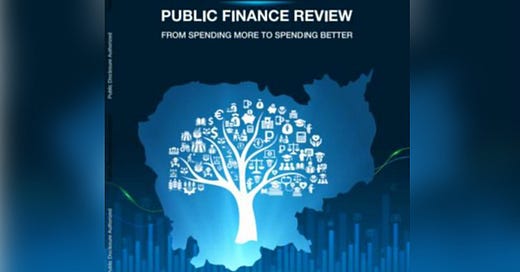Spending Review
The Kingdom can go from spending more to spending better, public expenditure review finds: World Bank, Closing of the 2023 annual review of the Ministry of Inspection Cambodia
Cambodia Currency
By Khmer Times
Cambodia can do more to translate increased public spending on social services sectors into stronger health and education outcomes, a World Bank review of public expenditure released on Thursday says.
As a result of improved revenue collection and prudent management of public finances, facilitated by Cambodia’s consistent e…





